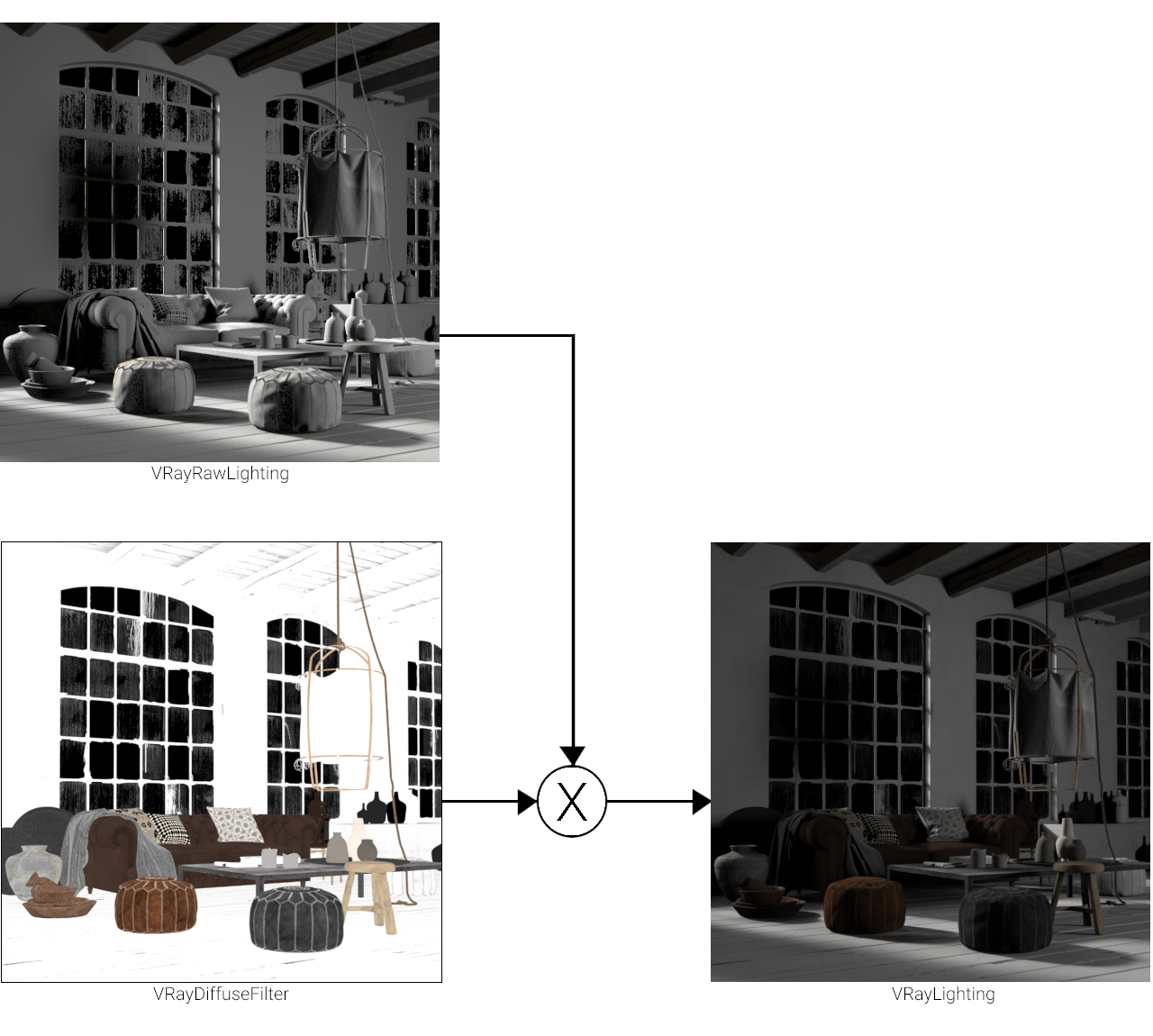VRayRawLighting
This page gives information on the Raw Lighting Render Element.
Overview
The Raw Lighting Render Element stores the effects of direct lighting on scene objects with no diffuse components. It is useful for adjusting the brightness of direct lighting during compositing.
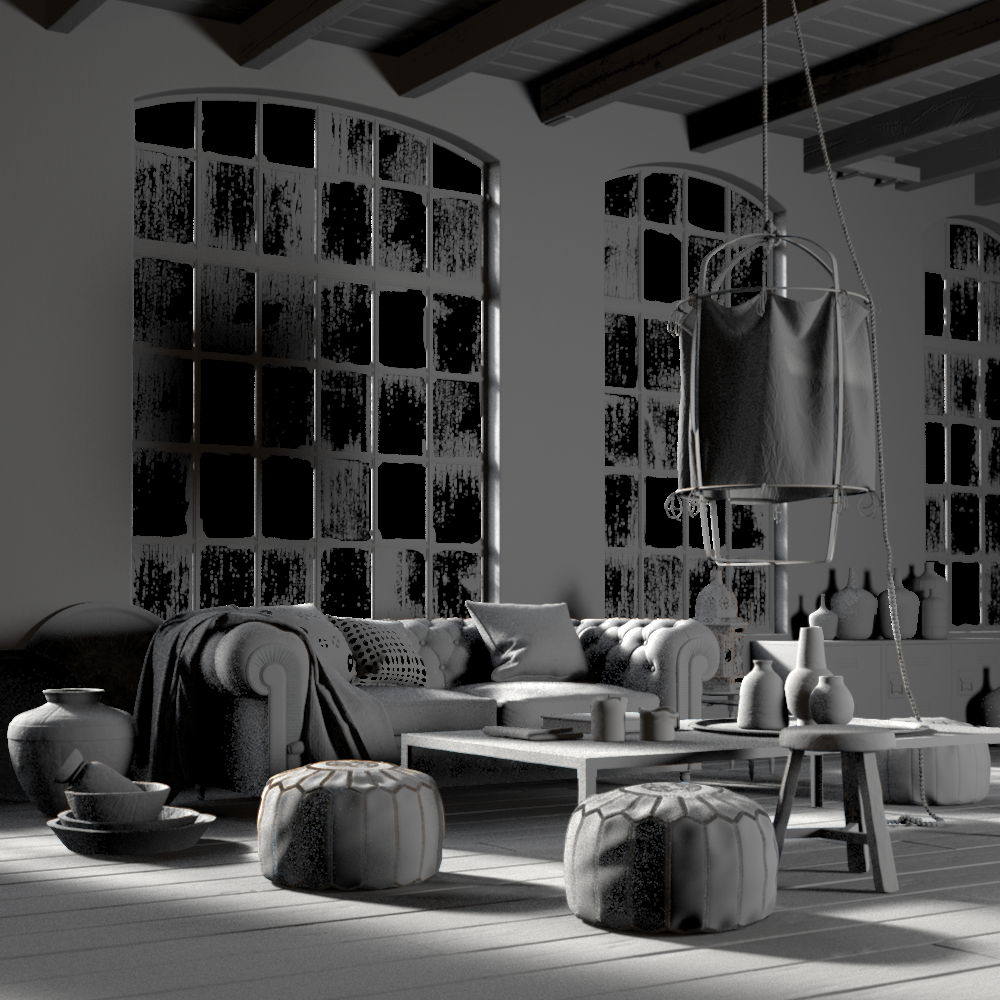
UI Path
||Render Setup window|| > Render Elements tab > Add button > VRayRawLighting
Parameters
This render element is enabled through the Render Elements tab of the Render Setup window in 3ds Max and displays its parameters in a rollout at the bottom of the window:
vrayVFB – When enabled, the render element appears in the V-Ray Virtual Frame Buffer.
deep output – Specifies whether to include this render element in deep images.
color mapping – Applies the color mapping options specified in the Color mapping rollout of the V-Ray tab in the Render Setup window to this render element. This option is enabled by default.
multiplier – Sets the overall intensity of the render element, where 1.0 is the standard multiplier.
denoise – Specifies whether to denoise this render element.
Common Uses
The Raw Lighting Render Element is useful for changing the appearance of direct lighting after rendering in a compositing or image editing software. Below are a couple of examples of its use. In this set of render elements, direct lighting affects the floor and wall a great deal more than the ceiling.

The Raw Lighting Render Element
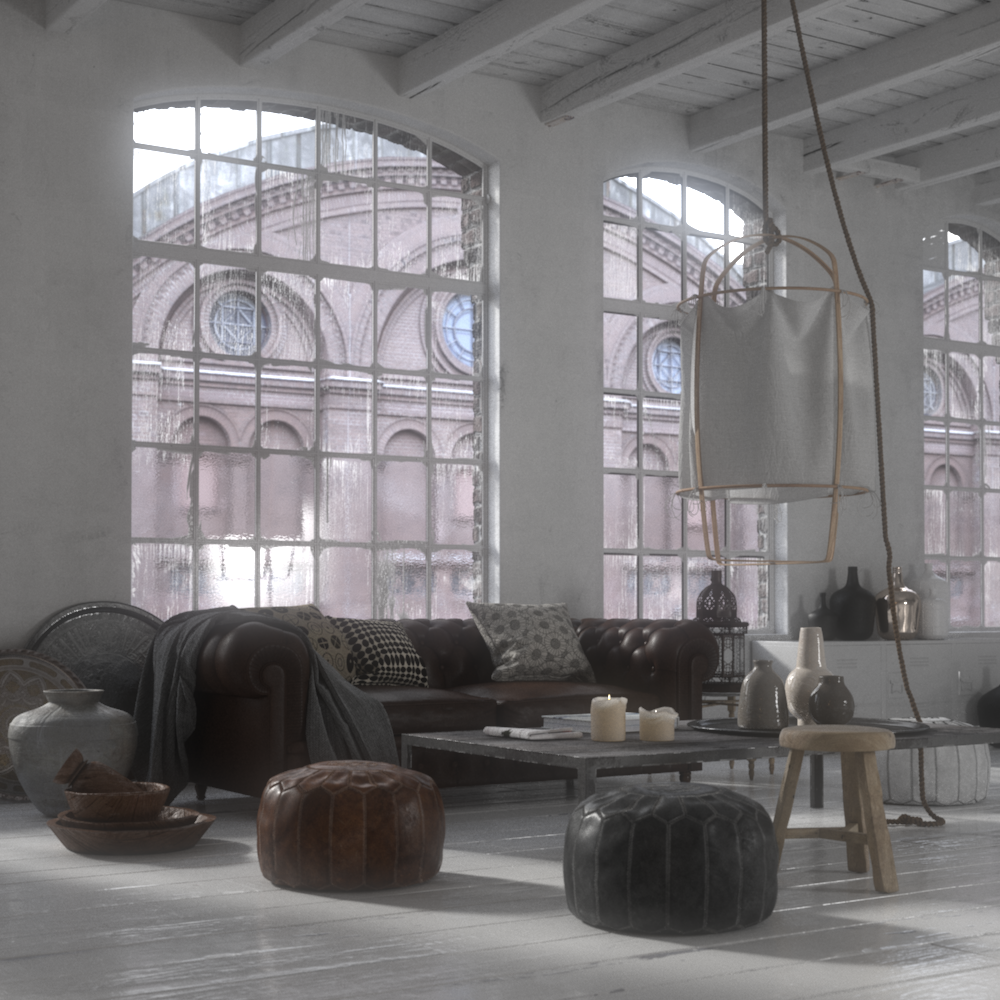
The Original Beauty Composite
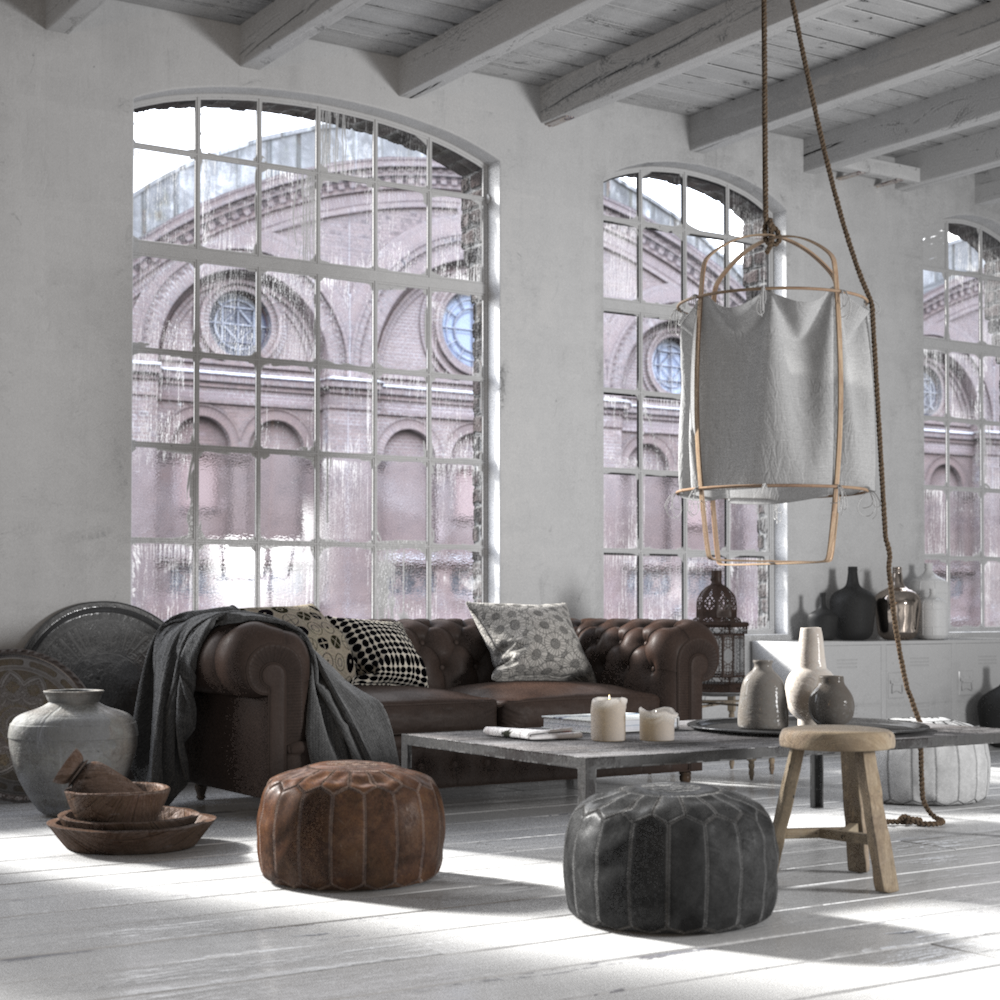
Brightened Lights
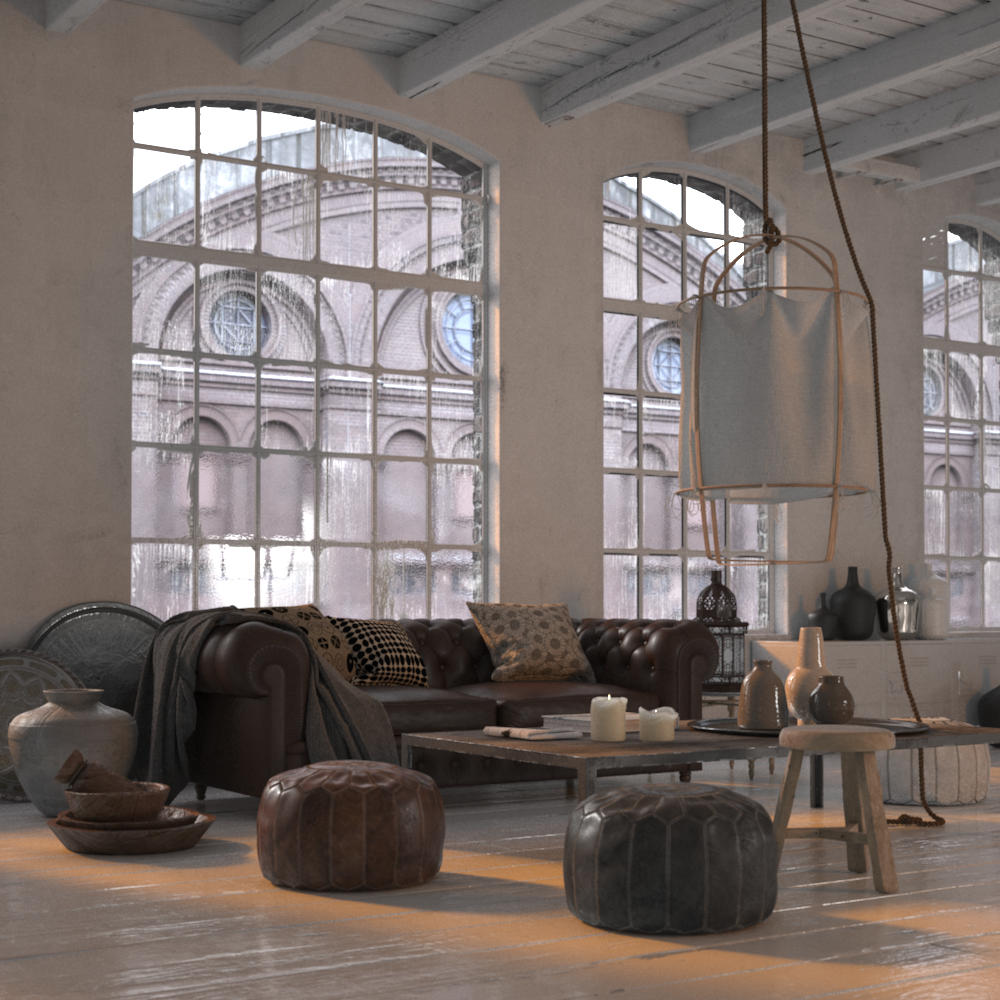
Tinted Lights
